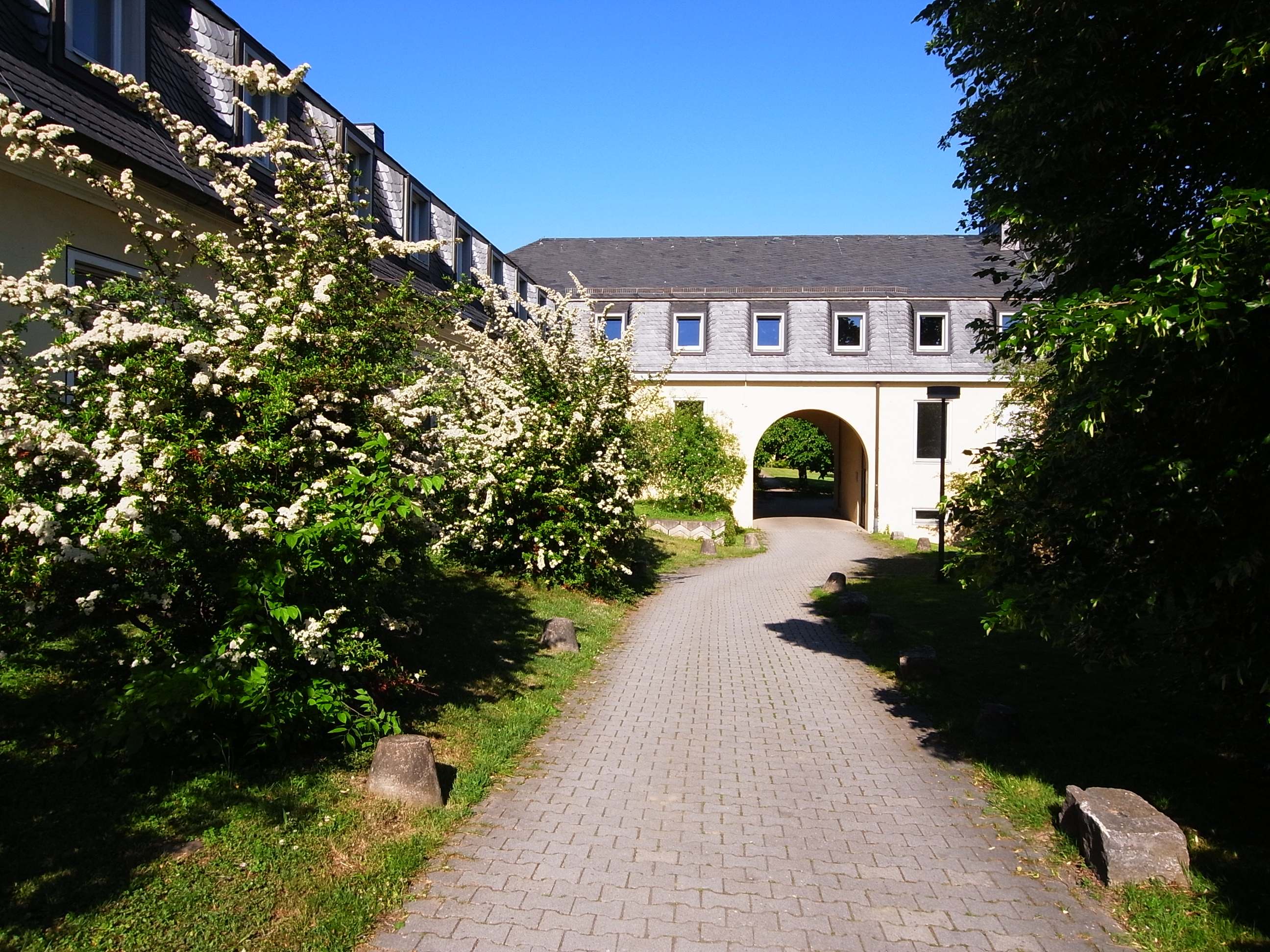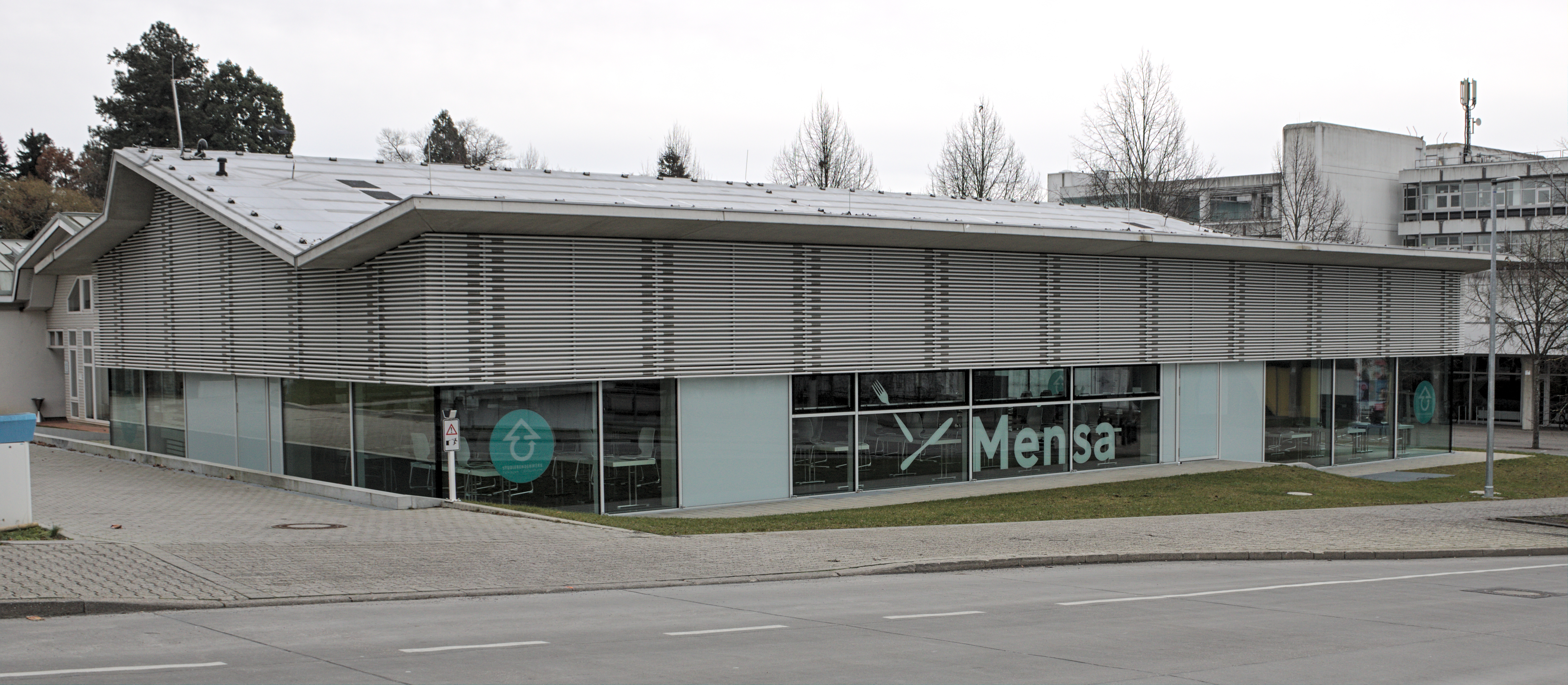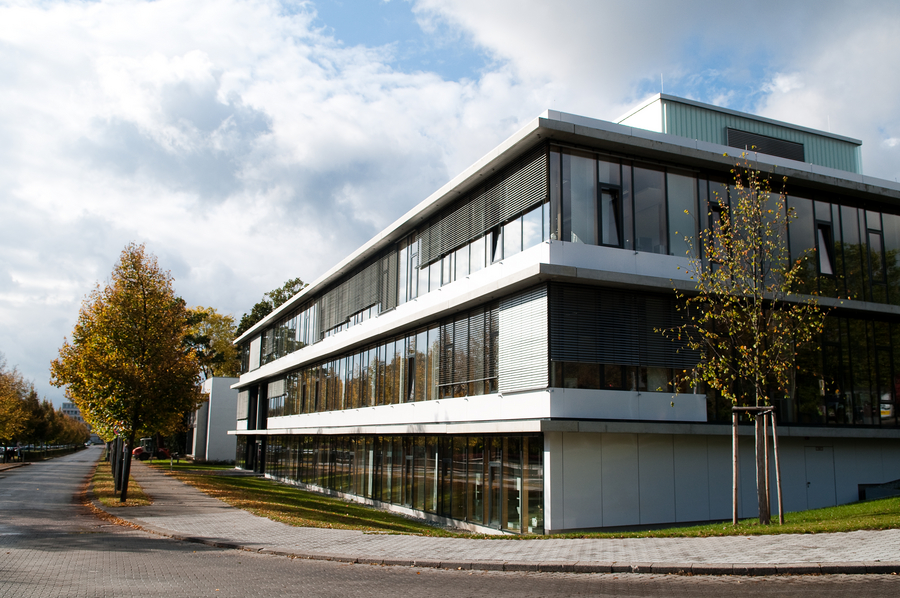University of Hohenheim on:
[Wikipedia]
[Google]
[Amazon]



 The University of Hohenheim (german: Universität Hohenheim) is a
The University of Hohenheim (german: Universität Hohenheim) is a

Official site
{{DEFAULTSORT:Hohenheim, University of 1818 establishments in Germany Agricultural universities and colleges in Germany Educational institutions established in 1818 Universities and colleges in Baden-Württemberg



 The University of Hohenheim (german: Universität Hohenheim) is a
The University of Hohenheim (german: Universität Hohenheim) is a campus university
A campus university is a British term for a university situated on one site, with student accommodation, teaching and research facilities, and leisure activities all together. It is derived from the Latin term campus, meaning "a flat expanse of ...
located in the south of Stuttgart, Germany
Germany,, officially the Federal Republic of Germany, is a country in Central Europe. It is the second most populous country in Europe after Russia, and the most populous member state of the European Union. Germany is situated betwe ...
. Founded in 1818, it is Stuttgart's oldest university. Its primary areas of specialisation had traditionally been agricultural and natural sciences. Today, however, the majority of its students are enrolled in one of the many study programs offered by the faculty of business, economics and social sciences. The faculty has regularly been ranked among the best in the country, making the University of Hohenheim one of Germany's top-tier universities in these fields. The university maintains academic alliances with a number of partner universities and is involved in numerous joint research projects.
History
From 1770 to 1794, the Karlsschule was the only university in Stuttgart. Since its founding in 1818, Stuttgart's oldest university has been the University of Hohenheim. The eruption of the Indonesian volcanoMount Tambora
Mount Tambora, or Tomboro, is an active stratovolcano in West Nusa Tenggara, Indonesia. Located on Sumbawa in the Lesser Sunda Islands, it was formed by the active subduction zones beneath it. Before 1815 eruption of Mount Tambora, 1815, its e ...
in 1815 triggered a global climate change
In common usage, climate change describes global warming—the ongoing increase in global average temperature—and its effects on Earth's climate system. Climate change in a broader sense also includes previous long-term changes to ...
and was one of the causes of the massive famine
A famine is a widespread scarcity of food, caused by several factors including war, natural disasters, crop failure, population imbalance, widespread poverty, an economic catastrophe or government policies. This phenomenon is usually accompani ...
suffered in the Kingdom of Württemberg
The Kingdom of Württemberg (german: Königreich Württemberg ) was a German state that existed from 1805 to 1918, located within the area that is now Baden-Württemberg. The kingdom was a continuation of the Duchy of Württemberg, which existe ...
at the beginning of the 19th century. In 1818 King William I of Württemberg
William I (german: Friedrich Wilhelm Karl; 27 September 178125 June 1864) was King of Württemberg from 30 October 1816 until his death.
Upon William's accession, Württemberg was suffering crop failures and famine in the "Year Without a Summer", ...
set up an Agricultural Academy in Hohenheim to radically improve general nutrition
Nutrition is the biochemical and physiological process by which an organism uses food to support its life. It provides organisms with nutrients, which can be metabolized to create energy and chemical structures. Failure to obtain sufficient ...
in the kingdom through teaching, experimentation and demonstration and, in so doing, laid the foundation for the University of Hohenheim. At that time, there were 18 students enrolled and a staff of three professors. It is not connected to or affiliated with the University of Stuttgart (founded in 1829), although there is collaboration between the two.
The first director of the academy was Johann Nepomuk Schwerz, and it was located in Hohenheim Palace, built by Charles Eugene, Duke of Württemberg.
In 1847 the institution was designated as holding the rank of an "Academy of Agriculture and Forestry". In 1904 the name was changed to "Agricultural College". Hohenheim College was awarded the right to confer doctorate
A doctorate (from Latin ''docere'', "to teach"), doctor's degree (from Latin ''doctor'', "teacher"), or doctoral degree is an academic degree awarded by universities and some other educational institutions, derived from the ancient formalism ''li ...
s in 1918 and habilitations in 1919. With the appointment of Margarete von Wrangell to the chair for plant nutrition
Plant nutrition is the study of the chemical elements and compounds necessary for plant growth and reproduction, plant metabolism and their external supply. In its absence the plant is unable to complete a normal life cycle, or that the element i ...
in 1923, she became the first female full professor
Professor (commonly abbreviated as Prof.) is an academic rank at universities and other post-secondary education and research institutions in most countries. Literally, ''professor'' derives from Latin as a "person who professes". Professors ...
at a German university. During the period of national socialism
Nazism ( ; german: Nazismus), the common name in English for National Socialism (german: Nationalsozialismus, ), is the far-right totalitarian political ideology and practices associated with Adolf Hitler and the Nazi Party (NSDAP) in Naz ...
, the university was brought into line with the party’s ideology, and it was forced to close in 1945.
Architecturally, the university that re-opened its doors in 1946 had survived World War II
World War II or the Second World War, often abbreviated as WWII or WW2, was a world war that lasted from 1939 to 1945. It involved the vast majority of the world's countries—including all of the great powers—forming two opposing ...
relatively undamaged. In 1964 the faculties of Agricultural Sciences and Natural Sciences were created, followed in 1968 by the Faculty of Business, Economics and Social Sciences. Hohenheim has enjoyed university status since 1967 when it became known as Universität Hohenheim.
Today there are approximately 9,000 students and a teaching staff of around 900, of which slightly more than 100 are professors. Over 2,000 people now work at the university. The current rector of the university is the agricultural economist Prof. Dr. Stephan Dabbert (born June 23, 1958), who took office on April 1, 2012.
Location
The University of Hohenheim is located in southwest Germany, in the district of Plieningen on the southern rim of Baden in Württemberg’s capital, Stuttgart. It was named the most beautiful campus university in Baden-Württemberg in 2009 and is generally acknowledged as having one of the most picturesque campuses in the country. The baroque palace, the University's emblem and its main building, is surrounded by the historic parklands and botanicalHohenheim Gardens
With an area of more than 30 hectares, the Hohenheim Gardens are the largest part of the campus of the University of Hohenheim in Stuttgart, Baden-Württemberg, Germany. The oldest part of the garden, the Exotic Garden or Franziskas Dörfle, was es ...
including the historic Landesarboretum Baden-Württemberg
The Landesarboretum Baden-Württemberg (16.5 hectares) is a historic arboretum and part of the Hohenheim Gardens maintained by the University of Hohenheim, on Garbenstrasse in the Hohenheim district of Stuttgart, Baden-Württemberg, Germany.
Th ...
.
The campus is close to the light rail line U3 station Plieningen Garbe (Stuttgart Stadtbahn
The Stuttgart Stadtbahn is a light rail system in Stuttgart, Germany. The Stadtbahn began service on 28 September 1985. It is operated by the Stuttgarter Straßenbahnen AG (SSB), which also operates the bus systems in that city. The Stuttgar ...
) and is within minutes of the Stuttgart airport, Stuttgart Exhibition Center and major motorways.

Research
The university currently pursues research in the fields of health, nutrition, agriculture, consumer protection and environmental protection, as well as economics and communication. Areas of particular importance include: * Agricultural and nutritional sciences within the food chain * Biobased products and bioenergy from agriculture * Biological signals * Bioeffector research Biofector * Innovation and servicesUniversity networks
The university is active in academic alliances and is a member of both the ELLS and the HERMES university networks.ELLS
The University of Hohenheim was co-founder of the Euroleague for Life Sciences (ELLS) which was established in 2001. This university life sciences network presently includes the following members: * University of Hohenheim (UHOH), Stuttgart, Germany * University of Copenhagen Faculty of Science (KU), Copenhagen, Denmark *Swedish University of Agricultural Sciences
The Swedish University of Agricultural Sciences, or Swedish Agricultural University (Swedish: ''Sveriges lantbruksuniversitet'') (SLU) is a university in Sweden. Although its head office is located in Ultuna, Uppsala, the university has several c ...
(SLU), Uppsala, Sweden
* University of Natural Resources and Applied Life Sciences Vienna (BOKU), Austria
* Wageningen University
Wageningen University & Research (also known as Wageningen UR; abbreviation: WUR) is a public university in Wageningen, Netherlands, specializing in life sciences with a focus on agriculture, technical and engineering subjects. It is a globally ...
and Research Centre (WUR), the Netherlands
* Czech University of Life Sciences Prague
Czech University of Life Sciences Prague (CZU; ( cs, Česká zemědělská univerzita v Praze), ČZU; also Czech University of Agriculture in Prague) is a university of agricultural education and research in Prague, the Czech Republic, establish ...
(CULS), Czech Republic and
* Warsaw University of Life Science (SGGW), Poland.
* University of Kassel
The University of Kassel (german: link=no, Universität Kassel) is a university founded in 1971 located in Kassel, Hessen, in central Germany. As of February 2022 it had about 25,000 students and about 3300 staff, including more than 300 profe ...
, Kassel, Germany.
* Szent István University, Gödöllö, Hungary
Main fields of co-operation in ELLS are:
* joint curriculum development
* student and staff mobility
Mobility may refer to:
Social sciences and humanities
* Economic mobility, ability of individuals or families to improve their economic status
* Geographic mobility, the measure of how populations and goods move over time
* Mobilities, a conte ...
* pooling of expertise
* quality assurance
* development of university policy
Policy is a deliberate system of guidelines to guide decisions and achieve rational outcomes. A policy is a statement of intent and is implemented as a procedure or protocol. Policies are generally adopted by a governance body within an orga ...
and strategy
* internationalization
In economics, internationalization or internationalisation is the process of increasing involvement of enterprises in international markets, although there is no agreed definition of internationalization. Internationalization is a crucial strateg ...
HERMES
The HERMES (Higher Education and Research in Management of European UniversitieS) network is a strategic alliance of 18 leading European universities in 11 countries. Its goal is to offer dual degree programs in Management on all academic levels: Bachelor's, Master's and Doctoral studies. The participating universities work closely together in defining their study programs, exchanging professors and organizing joint research projects. Each year, this network holds an annual conference at one of the partner universities, where common programs are defined and achievements are reported.Scientific Centers of the University
* Life Science Center * Eastern Europe Center (EEC) * Center for Bioenergy and Biobased Products * Competence Center for Plant Breeding * Center for Agriculture in the Tropics and Subtropics * Food Security Center * Center for Research on Innovation and Services * Competence Center Gender and NutritionMuseums
The university’s museums are open to the general public. Visitors can take a tour through the history of agriculture in the German Agricultural Museum, which encompasses 5,700 sq.m. of covered exhibition space. The Zoological and Veterinary Museum has a collection of teaching aids and curiosities on display in a traditional exhibition in the palace. Set in the Exotic Garden of the university, the Hohenheim History Museum in the Spielhaus tells the history of the municipality, the palace and the university.Special characteristics
* The University of Hohenheim has been accredited as being a family-oriented university since 2004. * The university possesses its owncemetery
A cemetery, burial ground, gravesite or graveyard is a place where the remains of dead people are buried or otherwise interred. The word ''cemetery'' (from Greek , "sleeping place") implies that the land is specifically designated as a buri ...
, where professors were buried a long time ago. Today it is used very rarely.
* According to a survey conducted to elect the most beautiful campus in Germany, the university could reach the 7th place in the overall placings in 2009. Therefore, it is seen as one of the most beautiful campuses in Baden-Württemberg
Baden-Württemberg (; ), commonly shortened to BW or BaWü, is a German state () in Southwest Germany, east of the Rhine, which forms the southern part of Germany's western border with France. With more than 11.07 million inhabitants across a ...
.
* The university hosts the Josef G. Knoll Visiting Professorship for Development Studies, a chair endowed by Senator Herman Eiselen. The first holder, Prof. Dr. Patrick Webb, established a programme of teaching and research from 1996 through 1998. He was succeeded by Prof. Dr. Dieter Neubert (1999/2000), Prof. Dr. Heinz-Rüdiger Korff (2000–2004), and PD Dr. Thomas Berger (2004–2007).
Notable professors and alumni
* Enno Bahrs (born 1967), is an agricultural scientist and economist, and tax expert, at the University * Stephan Dabbert (born 1958), German agricultural economist and Rector of the University * Werner Doppler (born 1941), German agricultural and economical *Ruediger Heining
Ruediger Heining (* 1968 in Bielefeld, West Germany) is a German graduate economist and agricultural scientist. He is considered an expert on vocational education and development in South-West Europe and the Caucasus and since 2017 has been manag ...
(born 1968), German agricultural scientist and economist
* Wilhelm Hertenstein (1825–1888), Swiss politician and President of the Confederation 1888
* Winfried Kretschmann
Winfried Kretschmann (born 17 May 1948) is a German politician serving as Minister-President of Baden-Württemberg since 2011. A member of the Alliance '90/Greens, he was President of the Bundesrat and ''ex officio'' deputy to the President of ...
(born 1948), German politician of the Green Party of Germany, Minister-President of the state of Baden-Württemberg since 2011
* Abdul Ghafar Lakanwal, Afghan cabinet minister
* Hans-Peter Liebig
Hans-Peter Liebig (born January 23, 1945, in Neuruppin, Brandenburg) is a German agronomist for horticulture, he was 2002–2012 rector of the University of Hohenheim.
Biography
After studying at the State Engineering Academy for Horticulture i ...
(1945), German agricultural scientist and Rektor of the University 2002-2012
* Uwe Ludewig (born 1967), German agricultural scientist and Director of the Institute of Crop Science Hohenheim
* Stefan Mappus
Stefan Mappus (born 4 April 1966) is a former German politician from the Christian Democratic Union (CDU). He was the 8th Minister President of the state of Baden-Württemberg 2010–2011 and chairman of the CDU Baden-Württemberg 2009–2011 ...
(born 1966), German politician from the Christian Democratic Union (CDU). He was Minister-President (“Governor”) of the state of Baden-Württemberg 2010-2011
* Torsten Müller (born 1962), German agricultural scientist and Dean of Education of the Agricultural Science Faculty in Hohenheim
* Guenter Neumann (born 1958), German plant physiologist and scientific coordinator of the EU Research Project Biofector
* Manfred G. Raupp Manfred Gustav Raupp (born 13 November 1941 Staffort, a suburb of Stutensee) is a German
agricultural scientist and economist. He is honorary professor of the Czech University of Life Sciences Prague active in the Department of Agricultural Researc ...
(born 1941), German agricultural and economical scientist
* Volker Roemheld Volker Roemheld (born 22 November 1941 in Schwaig near Nuremberg, died 27 November 2013 in Stuttgart) was a German agricultural scientist, plant physiologist and soil biologist at Hohenheim University.
Biography
After attending school Volker Rhoe ...
(1941–2013), German agricultural scientist, plant physiologist and soil biologist at Hohenheim University
* Wilhelm Conrad Roentgen (1845–1923), German physicist, discoverer of X-rays
* Satyabrata Sarkar (born 1928), Indian virologist
* Jürgen Stark (born 1948), German economist and prior chief economist of the European Central Bank
* Ralf T. Voegele (born 1963), German biologist and Dean of the Agricultural Science Faculty in Hohenheim
* F. Wolfgang Schnell (1913–2006), German professor of applied genetics and plant breeding
* Markus Weinmann (* 1974), German agricultural scientist in the area of Plant Physiology
* Margarete von Wrangell (1877–1932), Baltic German agricultural chemist and the first female full professor at a German university
* Juergen Zeddies (born 1942), is a German agricultural economist and Emeritus of the University
References
External links
Official site
{{DEFAULTSORT:Hohenheim, University of 1818 establishments in Germany Agricultural universities and colleges in Germany Educational institutions established in 1818 Universities and colleges in Baden-Württemberg